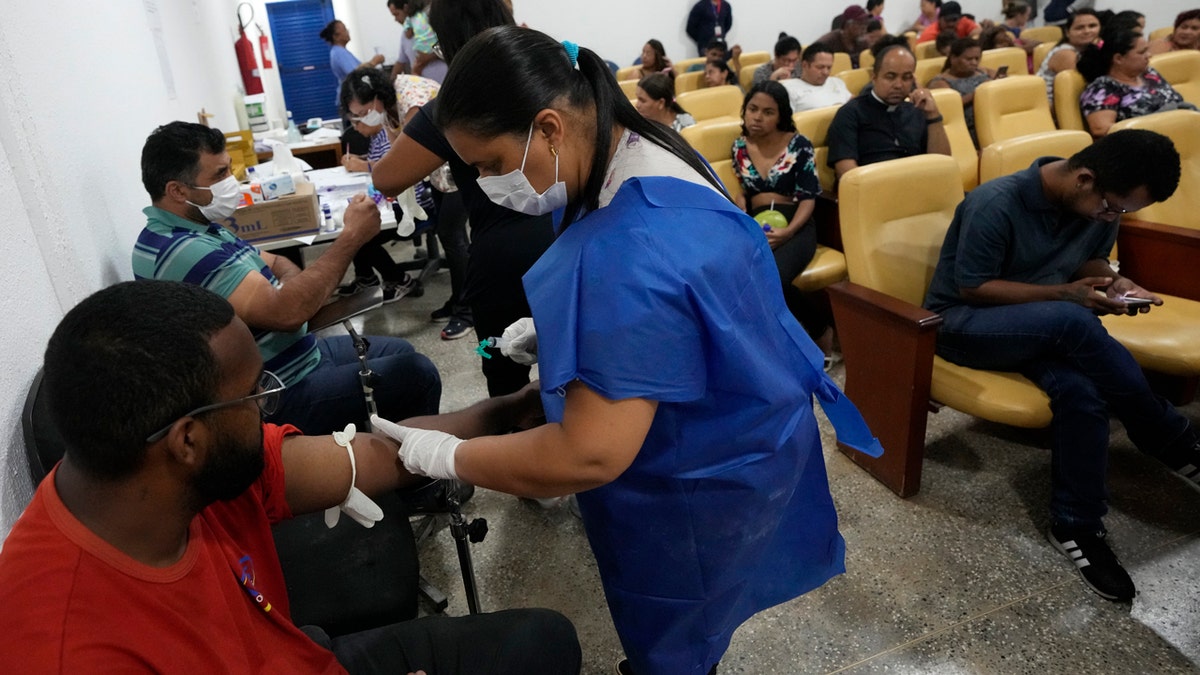
Rio de Janeiro (AP) – Rio de Janeiro has declared a public health emergency due to an outbreak of mosquito-borne dengue fever, the city said in its official gazette Monday, as Carnival celebrations begin. A few days ago. Brazil.
But the outbreak was not expected to disrupt the carnival, which officially begins on Friday evening and runs until February 14.
Man dies after cooking and eating highly toxic pufferfish
Rio de Janeiro City Hall announced the opening of 10 care centers, the creation of an emergency operation center and the allocation of hospital beds for dengue patients. Authorities will also use “smoke cars” in areas with the highest incidence of cases, spraying pesticides into the air.
Since the beginning of 2024, the municipality has recorded more than 10,000 dengue cases. This is less than half of the total cases – 23,000 – recorded in the whole of 2023.
The announcement comes as tourists and fans flock to Rio de Janeiro to take part in street parties and a spectacular parade of samba schools.
Dengue is a viral infection that spreads to humans through the bite of infected mosquitoes and is more common in tropical climates. Frequent rains and high temperatures, which accelerate mosquito hatching and larval development, make the famously hot city of Rio de Janeiro prone to dengue outbreaks.
But the problem is national. Dengue cases explode across the country Brazil In addition to the Federal District, it has caused at least four states – Acre, Minas Gerais and Goiás – to declare a state of public health emergency.
On Monday, the Brazilian The Air Force established a 60-bed field hospital in the Federal District of Selandia that was to begin treating patients.
“Our aim is to provide relief to emergency care units in the region, as today about 20 percent of dengue cases in the country are in the Federal District,” said Air Force Commander Lt. Brig. Marcelo Canetz Damascene said in a statement.
According to the World Health Organization, most people infected with dengue do not develop symptoms, but if they do, they may include high fever, headache, body aches, nausea and itching. Although most get better after a week or so, some develop a severe form and require hospitalization. In such cases, dengue can be fatal.
The WHO said in December that climate change, which leads to higher temperatures and more rainfall, is linked to a higher risk of dengue.
Rio Mayor Eduardo Pace urged “cariocas” – as Rio residents are known – to eliminate stagnant water sources, which mosquitoes use to breed.
“Unlike the COVID-19 pandemic, in which individual citizens could do little more than ask governments to get vaccines, the dengue case depends on individual citizen action,” Pace said.
According to the Ministry of Health, in March 2023, Brazil approved a vaccine against dengue and became the first country in the world to offer a dengue vaccine through the public health system. More than 3 million people are expected to receive jobs in 2024.